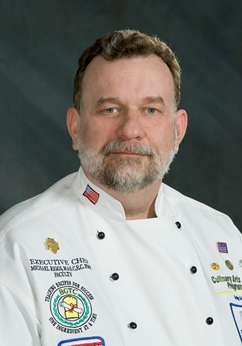50-Minute Classroom: How to Buy Knives, Part 3
Tuesday, 30 November 2010 19:22By Adam Weiner
 Chef Weiner continues his advice for students on knife selection and maintenance. This month: properly using knives.
Chef Weiner continues his advice for students on knife selection and maintenance. This month: properly using knives.
Over the last two months, these articles were written in handout format for your students regarding how to buy knives/how knives are made, and how to hone and sharpen knives. Again, as a handout, this month’s article is about using knives. Next month, the last part of this series, will be on how to care for knives.
Using Knives
Here’s the bad news: You can’t learn how to use a knife from reading a handout, any more than you can learn how to drive a car by playing a computer game. With that said, there are a number of good Web sites on the subject, such as www.hertzmann.com, particularly, “The Three Aspects of Knife Skills.”

 Educators, chefs and farmers gathered in Chicago to learn how to increase, Improve, market and teach sustainable meat production.
Educators, chefs and farmers gathered in Chicago to learn how to increase, Improve, market and teach sustainable meat production. Less easy than it might seem, there’s a strategy to forming small groups that makes group activities in class more effective and enhances student learning.
Less easy than it might seem, there’s a strategy to forming small groups that makes group activities in class more effective and enhances student learning. Part 1 of a two-part story of an educator’s learning excursion this past summer.
Part 1 of a two-part story of an educator’s learning excursion this past summer. Educators and students were among the 38 finalists who rose to the occasion in the California Raisin Marketing Board’s final bake-off.
Educators and students were among the 38 finalists who rose to the occasion in the California Raisin Marketing Board’s final bake-off.